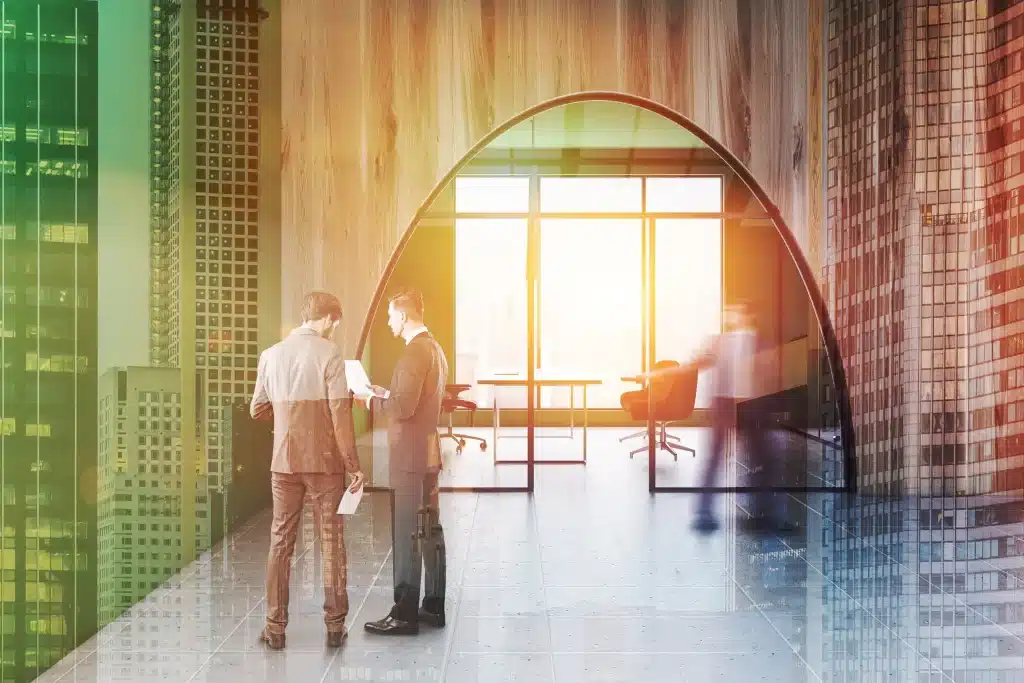What is Civil Mediation as a Means of Resolving System Development Disputes?

It is well known that litigation is a common solution when a dispute arises. However, in the realm of system development, dispute resolution is not limited to litigation. This article introduces civil mediation as an alternative to litigation, and also explains the concept of ADR (Alternative Dispute Resolution). Furthermore, it provides an overview of the unique features of civil mediation in disputes related to system development, as well as the advantages of this method.
The Position of Civil Mediation as ADR
What is ADR?
Civil mediation is a type of ADR. Therefore, in order to understand what civil mediation is, it is necessary to first understand what ADR is. ADR stands for Alternative Dispute Resolution, which is translated into Japanese as “代替紛争解決手続”. The term “alternative” here means “an alternative to litigation”.
Regardless of whether it’s system development or not, when a dispute arises, resolving it through litigation can be time-consuming and costly. Given these circumstances, in actual business situations, it is common to find some compromise through negotiations between the parties before resorting to litigation.
As a means of dispute resolution, the following article organizes the merits and demerits of “litigation” and “negotiation”.
https://monolith.law/corporate/disputes-related-to-system-development[ja]
This article introduces the many advantages of dispute resolution through negotiation, such as low cost and speed, which are not found in litigation. It also explains that legal knowledge is useful even when aiming for resolution through negotiation.
In the context of this overall picture, it is helpful to understand that ADR is positioned between “litigation” and “negotiation”. In other words, it aims to resolve disputes more flexibly through other means that serve as an “alternative” to litigation, although it is not litigation itself.
Types of ADR and the Position of Civil Mediation
Generally, procedures referred to as ADR are classified into the following two types:
- Various procedures to promote agreement between the parties to a dispute → Mediation falls under this category.
- Procedures in which a third party makes a judgment on the dispute and both parties agree to be bound by that judgment, even if they have not reached an agreement → Arbitration falls under this category.
ADR itself is a very broad concept, and it can be conducted by courts or by private organizations that specialize in ADR. Civil mediation is one of the procedures conducted by the courts (Understanding that “civil mediation” deals with civil issues not as “civil litigation” but as “discussion” makes it easier to understand that both are under the jurisdiction of the courts).
What is Civil Mediation?
Civil mediation is a process in which the court promotes discussion between the parties to aim for dispute resolution without resorting to litigation. It has advantages not found in litigation, such as the expectation of a resolution that takes into account the specific circumstances of the parties, without necessarily being bound by the law. Other advantages include the shorter time it takes to reach a resolution compared to litigation, and the fact that it can be conducted privately.
The following quote from Article 1 of the Japanese Civil Mediation Act clearly defines the position of civil mediation.
Article 1: The purpose of this Act is to aim for a resolution that is in accordance with reason and reality through mutual concessions of the parties in disputes related to civil matters.
What are the Characteristics and Merits of Civil Mediation in System Development Disputes?

In the case of disputes related to system development, they are usually treated as civil matters between businesses (or individuals), typically between the user and the vendor. However, there are several personalityistics that distinguish these disputes from general civil mediation.
The possibility of appointing IT experts as mediation committee members
Whether the dispute related to system development is fought as a civil ‘case’ or resolved through civil ‘mediation’, the challenge often lies in how to incorporate specialized knowledge specific to the field of system development.
Considering this, for example, at the Tokyo Summary Court, it is a principle in civil mediation related to system development to appoint one expert with appropriate IT-related knowledge for the case and one legal expert as mediation committee members. In civil mediation, the mediation committee is composed of a total of three members: one mediator who is a judge or a lawyer, and two mediation committee members. The mediation committee intervenes to help form an agreement between the two parties. In other words, one of the two mediation committee members is typically chosen from IT experts, which is a personalityistic of system development mediation.
However, in cases where the scale of the case is large or multiple specialized perspectives are required, there may be cases where three or more expert mediation committee members are elected.
The role of IT experts is larger in mediation than in litigation
Also, connected to the principle that one of the two mediation committee members is an IT expert, the role of IT experts tends to be larger in mediation than in litigation. In litigation, the judge ultimately makes the judgment, and even if a person with IT expertise is involved as an expert witness, their role does not exceed a supplementary one.
However, in mediation, IT and system-related experts are expected to directly intervene between the parties and encourage mutual concessions. Depending on the case, actions such as operating a computer in the mediation room to verify the actual software situation may be taken. Such initiatives are more actively carried out in large courts such as the Tokyo District Court, and the court itself is proactively involved in resolving disputes without being bound by formal litigation procedures.
Be Aware that Mediation and Litigation are not Mutually Exclusive
One important point to note from our discussion so far is that choosing between ‘mediation’ and ‘litigation’ does not mean you are giving up one option for the other. This is not limited to system development, but in reality, even if you initially aim for a resolution through mediation, if both parties cannot agree, you may end up having to settle the matter in court as a civil case.
Also, in practice, a case that has once become a litigation may be turned into mediation by the judge’s decision. This is referred to as ‘attached mediation’.
Japanese Civil Mediation Act, Article 20: The court of first instance, when it deems appropriate, may, by its own authority, refer the case to mediation and have it handled by the competent court or handle it itself. However, this does not apply if, after the issues and evidence in the case have been organized, there is no agreement between the parties.
This is done for cases where the judge finds it extremely difficult to make a decision due to the nature of the case, or for cases where it is deemed appropriate for both parties to make concessions.
Summary
In this article, we discussed civil mediation as a means to resolve disputes related to system development. It is challenging to aim for a judicial resolution while taking into account specialized IT-related knowledge. Therefore, for comprehensive dispute resolution in this field, it is important to not be confined to one method, but to choose the appropriate solution depending on the situation.
Category: IT
Tag: ITSystem Development





















